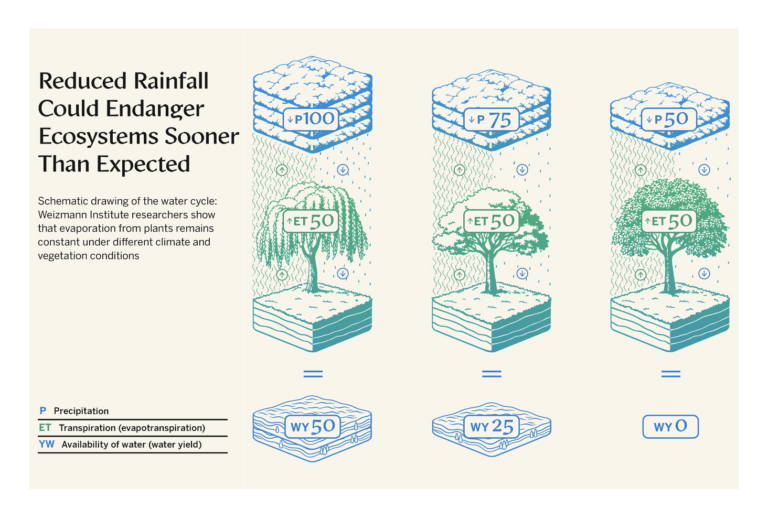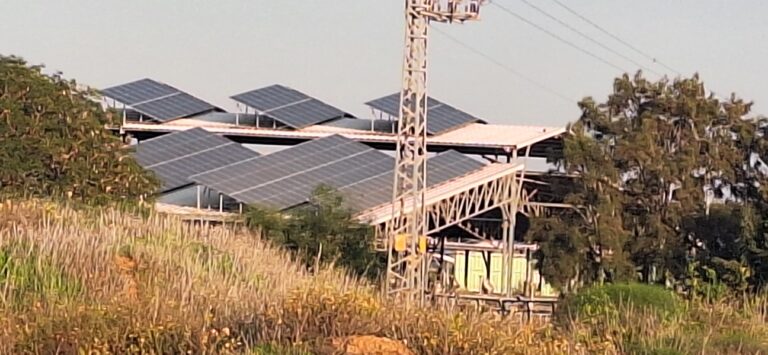Banque d'Israël et ministère de l'Environnement : vers une taxe carbone à l'exemple des pays de l'OCDE

[:fr]
Compte tenu de la crise climatique, le ministère israélien de la Protection de l’environnement et la Banque d’Israël ont réuni des experts pour discuter du réchauffement climatique, de ses effets potentiels sur l’économie israélienne et des mécanismes possibles pour réduire les émissions de gaz à effet de serre conformément aux engagements internationaux qu’Israël a pris et envisager une accélération du processus.

La ministre de la Protection de l’environnement, Gila Gamliel : «Nous intensifions la lutte contre la crise climatique mondiale et la taxe carbone est l’outil économique le plus efficace pour réduire les émissions de gaz à effet de serre. Dans ce processus, nous rejoindrons la majeure partie des pays de l’OCDE, dont Israël est membre, qui taxent le carbone tout en établissant des mécanismes qui renforcent l’environnement et améliorent l’efficacité énergétique. »
De nombreux pays et les principales organisations internationales accordent une attention croissante au changement climatique et à son impact potentiel sur l’économie mondiale. Nous approfondissons nos connaissances sur les risques – pour la société, l’économie et l’environnement – qui accompagnent le changement climatique, et l’activité visant à prévenir la réalisation de ces risques se développe.

Le gouverneur de la Banque d’Israël, le Pr Amir Yaron : «Parler du réchauffement climatique et de ses implications pour l’activité économique devient de plus en plus important dans le discours économique et les processus décisionnels à travers le monde. L’étude de la question et l’élaboration de moyens d’évaluer ses impacts font partie des travaux de recherche de la Banque d’Israël, et la sensibilisation à cette question est importante à mes yeux. Je salue la collaboration fructueuse entre la Banque d’Israël et le ministère de la Protection de l’environnement sur cette question et en accueillant l’atelier conjoint. »
Le ministère de la Protection de l’environnement et la Banque d’Israël, en collaboration avec d’autres partenaires du gouvernement, étudieront en profondeur ces questions et d’autres thèmes et consulteront les parties intéressées dans les organisations environnementales et l’industrie. « A la fin de ce processus, nous serons en mesure faire des recommandations au gouvernement d’Israël concernant la politique optimale de tarification du carbone ».
On s’inspirer de l’expérience internationale concernant la mise en œuvre de mécanismes de taxation du carbone, tout en utilisant une partie des recettes pour réduire l’impact économique de ces mécanismes par des systèmes de remboursement au profit des entités aux revenus les moins élevés, et d’allégements fiscaux au profit des secteurs qui subissent un impact négatif. Il est courant d’investir une partie des recettes dans des projets de transition visant l’efficacité énergétique des transports publics et des bâtiments, par exemple.
Diverses analyses et études présentées lors de l’atelier conjoint d’experts seront publiées séparément.
[:en]
In view of the climate crisis: The Ministry of Environmental Protection and the Bank of Israel are holding a joint expert workshop to discuss global warming, its potential effect on the Israeli economy, and possible mechanisms for reducing greenhouse gas emissions in accordance with the international commitments Israel has taken upon itself, and if future acceleration of the process is decided upon.
Minister of Environmental Protection Gila Gamliel: “We are stepping up the struggle against the global climate crisis, and carbon pricing is the most efficient economic tool for reducing greenhouse gas emissions. In this process, we will join the vast majority of OECD countries that are pricing carbon while also setting out mechanisms that empower the environment and increased energy efficiency.”
Bank of Israel Governor Prof. Amir Yaron: “Discussing global warming and its implications for economic activity is becoming increasingly important in the economic discourse and decision-making processes around the world. Studying the issue and developing ways of assessing its impacts are part of the Bank of Israel’s research work, and raising awareness of this issue is important in my view. I welcome the fruitful collaboration between the Bank of Israel and the Ministry of Environmental Protection on this issue, and in hosting the joint workshop.”
Many countries, and the main international organizations, are paying increasing attention to climate change and its potential impact on the global economy. We are increasing our knowledge regarding the risks—to society, the economy, and the environment—that accompany climate change, and the activity aimed at preventing the realization of those risks is growing.
The Ministry of Environmental Protection and the Bank of Israel, together with other partners in the government, will study these and other issues in depth and consult with interested parties in environmental organizations and industry, and at the end of this process, we will be able to make recommendations to the government of Israel regarding the optimal carbon pricing policy.
In this context, one can learn from international experience regarding the implementation of carbon pricing mechanisms while directing some of the proceeds from the mechanism to reducing its economic impact through refund mechanisms to the lower income deciles and fiscal breaks to sectors that have suffered a negative impact. It is also customary to divert some of the proceeds to investments in projects for the transition to a low-carbon and low-emission economy, such as low-polluting public transportation and energy-calibrated buildings.
Various analyses and studies presented at the joint expert workshop will be published separately.
[:]







